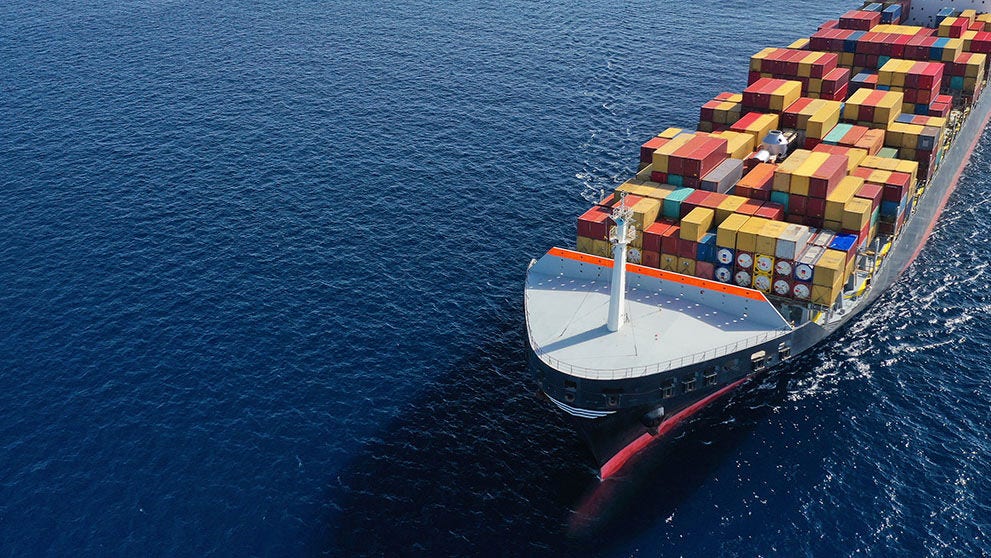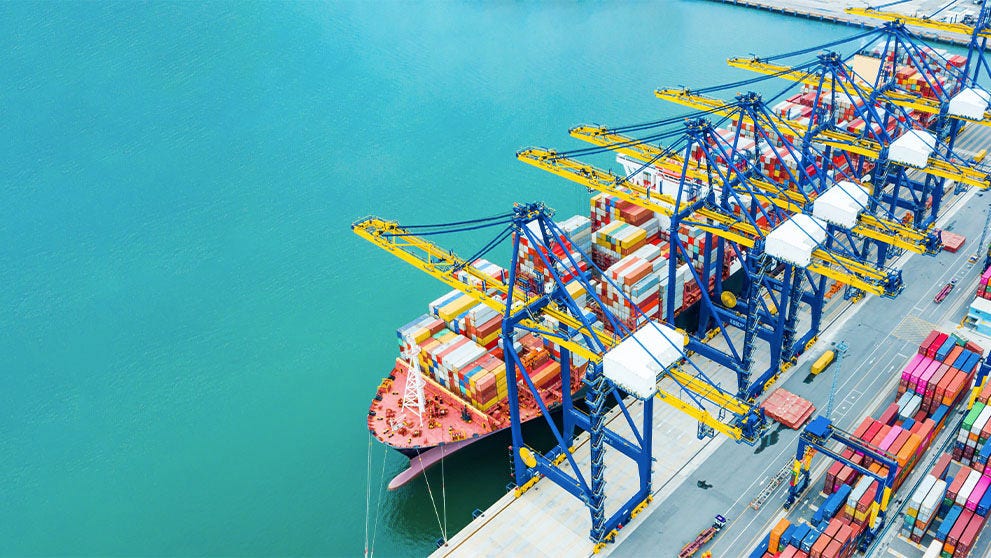
In the intricate world of international trade, clarity is paramount to ensuring smooth transactions and avoiding costly disputes. International Commercial Terms (Incoterms) serve as a globally recognized set of rules defining the responsibilities of buyers and sellers for the delivery of goods. They provide a common language that clarifies who is accountable for tasks, costs, and risks at various stages of the shipping journey.
This guide will focus specifically on how Incoterms significantly impact customs clearance procedures, delve into the essential process of choosing the right Incoterm for your shipments, and highlight common mistakes to avoid. Understanding these critical aspects is key to facilitating efficient international trade and seamless cross-border transactions.
What are Incoterms?
Incoterms are a globally recognized set of rules published by the International Chamber of Commerce (ICC). These standardized trade terms are crucial in international shipping as they define the responsibilities of sellers and buyers, clarifying tasks, costs, and risks associated with the delivery of goods. Understanding what Incoterms are is fundamental for any business engaged in cross-border trade, as they ensure clear communication and prevent misunderstandings between trading parties worldwide.
Key Incoterms and their implications
Understanding specific Incoterms is vital, as each defines distinct responsibilities, costs, and risks for both buyers and sellers. Here are some of the most commonly used types of Incoterms in shipping and their use implications:
- Ex Works (EXW): This term represents the minimum obligation for the seller. The seller simply makes the goods available at their own premises (e.g., factory or warehouse), and the buyer bears all costs and risks from that point, including export clearances and loading. This places maximum responsibility on the buyer.
- Free On Board (FOB): Often used for sea or inland waterway transport, FOB means the seller delivers when the goods pass the ship's rail at the named port of shipment. The seller clears the goods for export, but the buyer assumes all costs and risks once the goods are on board the vessel. This is a common choice for commodity shipping.
- Delivered at Place (DAP): Under this term, the seller delivers the goods, ready for unloading, at a named place of destination. The seller bears all costs and risks of bringing the goods to that specified location. However, the buyer is responsible for import customs clearance, duties, and taxes. This is a key aspect of DAP Incoterm customs clearance.
- Delivered Duty Paid (DDP): This term represents the maximum obligation for the seller, who delivers the goods, cleared for import and ready for unloading, at the named place of destination. The seller bears all costs and risks, including import customs formalities, duties, and taxes. This simplifies the process significantly for the buyer, making it a popular choice for international delivery where the buyer wants minimal involvement.
- Other Incoterms: While these types of Incoterms are widely used, other terms like Free Carrier (FCA), Carriage Paid To (CPT), Carriage and Insurance Paid To (CIP), Cost and Freight (CFR), and Cost, Insurance and Freight (CIF) also play crucial roles in various shipping scenarios. Each has unique implications for risk and cost allocation, impacting customs procedures.
How do Incoterms affect customs clearance?
Incoterms play a pivotal role in dictating the responsibilities between trading partners. This allocation directly impacts the efficiency and compliance of the entire shipping process, making their understanding essential for both buyers and sellers. Some key aspects include:
- Export customs responsibilities: Each Incoterm rule clearly states which party is responsible for obtaining any necessary export documentations or licenses, and carrying out the customs formalities required for goods to leave the seller's country. This ensures clarity from the outset of the international shipping journey.
- Import customs responsibilities: Similarly, Incoterms specify which party must secure any import licenses and complete the customs formalities for the goods to enter the buyer's country. This includes who bears the cost of these tasks, which is vital for calculating the true shipping charges.
- Duty and tax allocation: Different Incoterms also assign the responsibility for paying duties and taxes differently. For example, under a DAP Incoterm, the buyer handles import duties, whereas a DDP Incoterm places this charge on the seller, fundamentally altering the total landed cost for the importer.
- Impact on efficiency: Clear definitions within Incoterms lead to smoother customs procedures by reducing ambiguity. When responsibilities are well-defined, it minimizes potential delays and ensures all required documentation is handled by the designated party, contributing to faster customs clearance.
- Compliance and risk: Proper selection and application of Incoterms are critical for compliance with international trade regulations. Misunderstandings can lead to fines, penalties, or even goods being held at customs, impacting the entire process.
Choosing the right Incoterm for your shipment
Selecting the appropriate Incoterm is critical for minimizing risks and optimizing costs in your international transactions. Some factors to consider are:
- Nature of goods: The type of products you are shipping significantly influences your Incoterm choice. For instance, perishable or high-value items might necessitate terms like DDP for maximum seller control, ensuring secure and temperature-controlled transit to the buyer's location.
- Destination: The importing country's regulations, infrastructure, and customs efficiency play a key role. For complex markets, a seller might prefer terms like FCA to shift responsibility earlier, whereas a buyer in a well-established market might opt for EXW.
- Level of control desired: Consider how much control you, as either the buyer or seller, want over the shipping process. If a seller wants to manage the entire journey and customs clearance, DDP is ideal. Conversely, a buyer seeking full control from the point of origin might choose EXW.
- Risk tolerance: Assess your comfort level with bearing risks at different stages of the international shipping process. This directly influences whether you prefer terms where risk transfers early (e.g., EXW) or later (e.g., DDP).
- Cost implications: Each Incoterm dictates who pays for specific elements of the journey, including freight, insurance, and duties. Analyze the total shipping cost to determine the most financially advantageous term, taking into account the custom clearance charges at the destination too.
Common mistakes and best practices
Misunderstandings and errors when using Incoterms can lead to significant delays and unexpected costs. Being aware of these frequent mistakes is crucial for ensuring clarity and compliance:
- Misinterpreting responsibilities: A common error involves misunderstanding where the seller's obligations end and the buyers begin, particularly regarding transport costs, insurance, and risk transfer. Always clearly define the chosen Incoterm and refer to the official ICC rules to avoid disputes.
- Incorrectly applying incoterms: Using an Incoterm designed primarily for sea transport (like FOB) for air freight can cause significant complications and invalidates the term's intended purpose. Select the type of Incoterm that is appropriate for your chosen mode of transportation.
- Neglecting customs formalities: Both buyers and sellers may overlook their specific duties regarding Incoterms customs clearance, leading to goods being held at borders. Clearly identify who is responsible for export and import declarations, permits, and duties.
- Lack of clear communication: Failing to explicitly state the chosen Incoterm and its version in the sales contract and all related documents can lead to ambiguity. Consistent communication across all trading parties is essential for smooth global logistics.
Mastering incoterms for seamless global trade

Understanding Incoterms is fundamental for any business engaged in cross-border commerce, as they precisely define the responsibilities, costs, and risks between buyers and sellers. Their significant impact on customs clearances and the overall efficiency of international shipping underscores the need for clear agreements to facilitate smooth international transactions.
To navigate these complexities and ensure compliance, partnering with a reliable logistics provider is key. DHL Express offers comprehensive services, including a robust courier service with advanced international shipping and tracking abilities, to streamline your trade operations. To learn more about DHL’s services or to start simplifying your global transactions, open a DHL Express business account today!
















